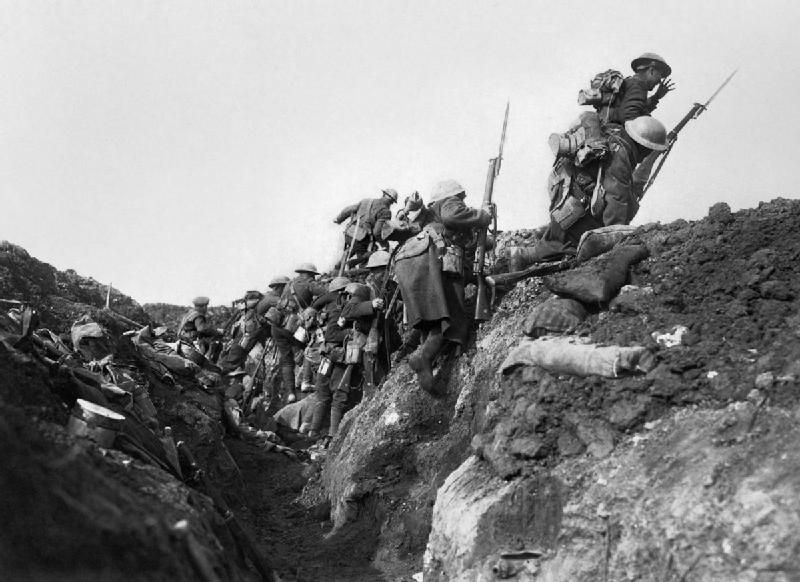
going over the top during the Battle of the Somme (credit: Wikipedia)
Long
before the horrible casualties began to mount, World War I was huge in the
historians’ views even from its very beginning because, for the first time in
history, modern scientific weapons and technologies were going to be used to
kill men in assembly-line fashion. The process was going to be made as efficient
as the new, scientifically designed factories: scientific technologies,
arranged in efficient sequences and supervised by experts. Now we would see
what Science could do.
We
saw.
Consider
just one telling statistic: the British Army lost more casualties—sixty
thousand wounded, missing, and killed—in the first six days of the Battle of
the Somme than it had lost in all of its recorded history, all over the world,
up until that week. France, Russia, Germany, Austria, Italy, the United States, Canada, and all of the other countries involved were hit with similar losses, over and
over, for four long years.
In
the end, nine million combatants were dead, with three times that many
permanently scarred. And those were just the combatants. How many civilians? No
one really knows. Every country on earth was touched, or we should say
wrenched, either directly or indirectly. Over six hundred thousand Canadians
(from a population of eight million) enlisted in the armed forces, and out of the
four hundred twenty thousand who actually got into the fighting in Europe, over
sixty-five thousand died.
Commentators
writing in newspapers and magazines in the last months leading up to the war
discussed in total seriousness the very likely possibility that the new modern
weapons would be useless because men would simply refuse to use them on other men.
Modern torpedoes, flame throwers, machine guns, poison gas, airplanes—the
horrors they’d cause! No. No one would be willing to use them.

Early 20th-century French postcard depicting the year 2000 (credit: Wikipedia)
Other
writers a few years before, more sanguine about how Science would affect
society, had even been speaking of a coming Golden Age. Science wasn’t just
showing us how to build horrible weapons. It was also curing diseases, creating
labour-saving machines, improving agriculture, and even inventing new forms of entertainment.
Progress was steadily reaching into the lives of even the humblest citizens.
Surely, goodness and mercy would follow close behind.
No comments:
Post a Comment
What are your thoughts now? Comment and I will reply. I promise.